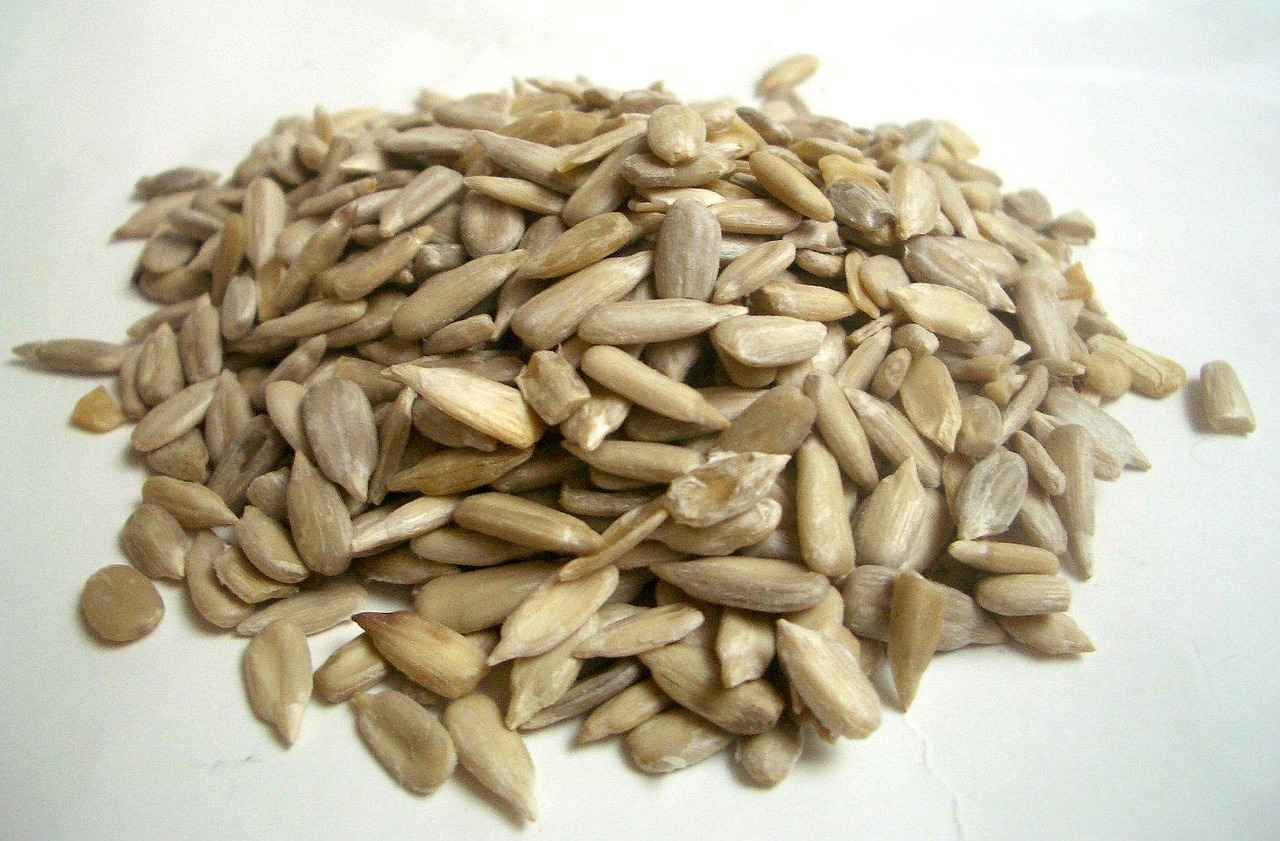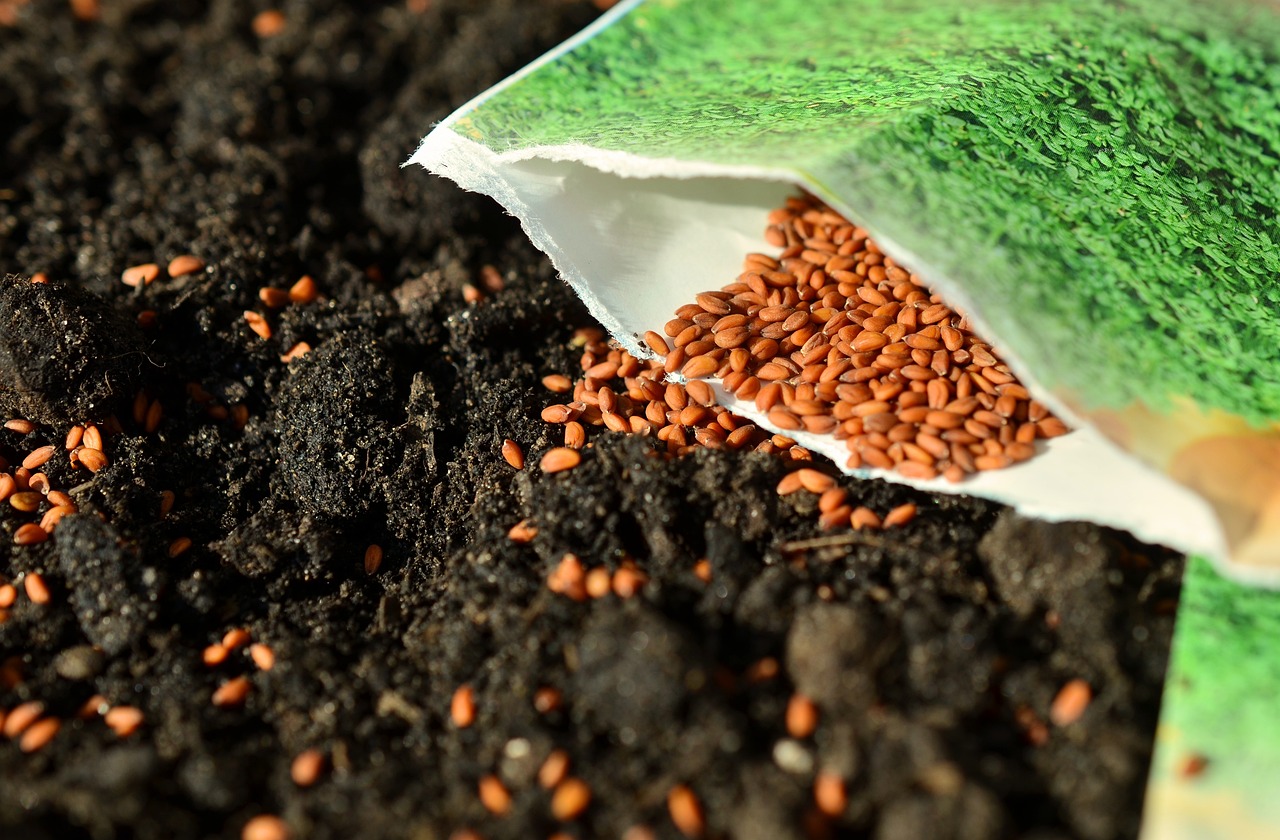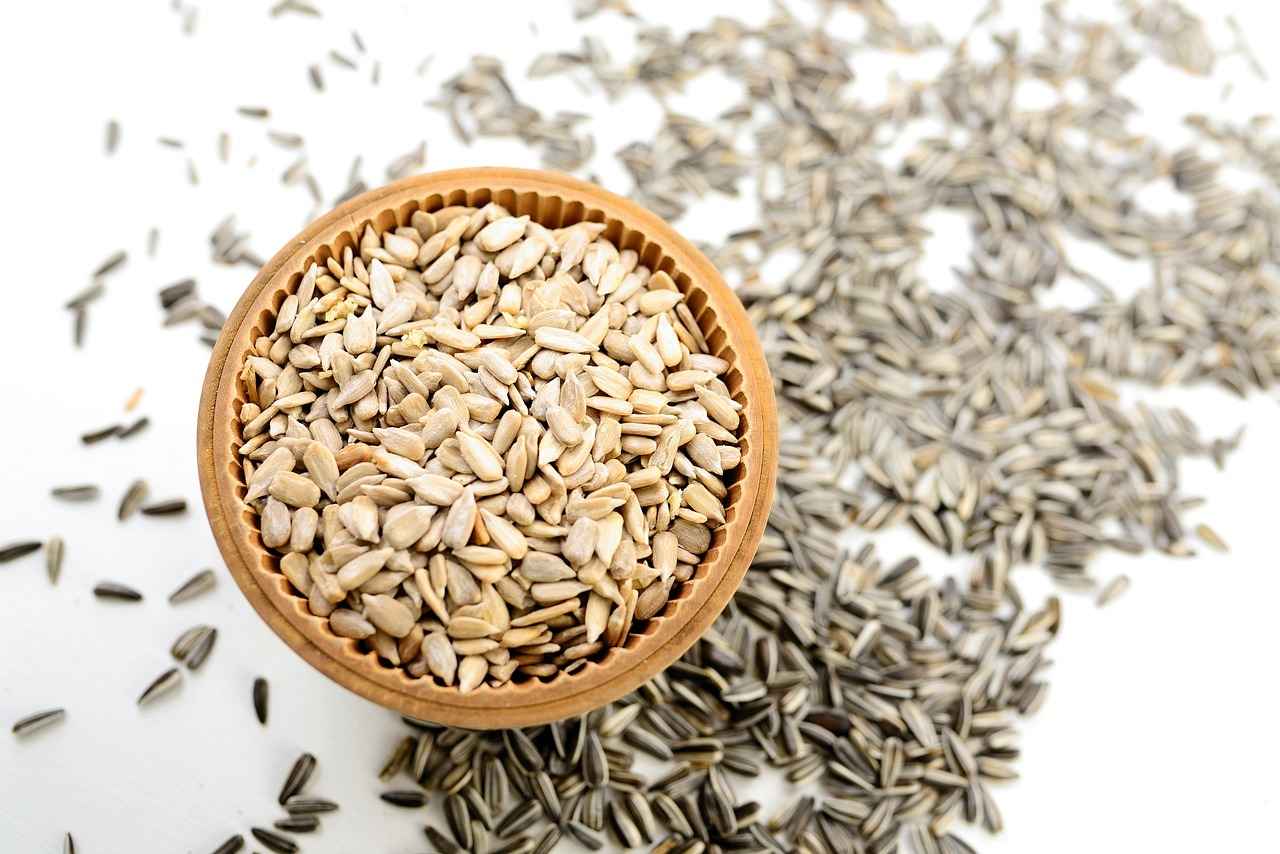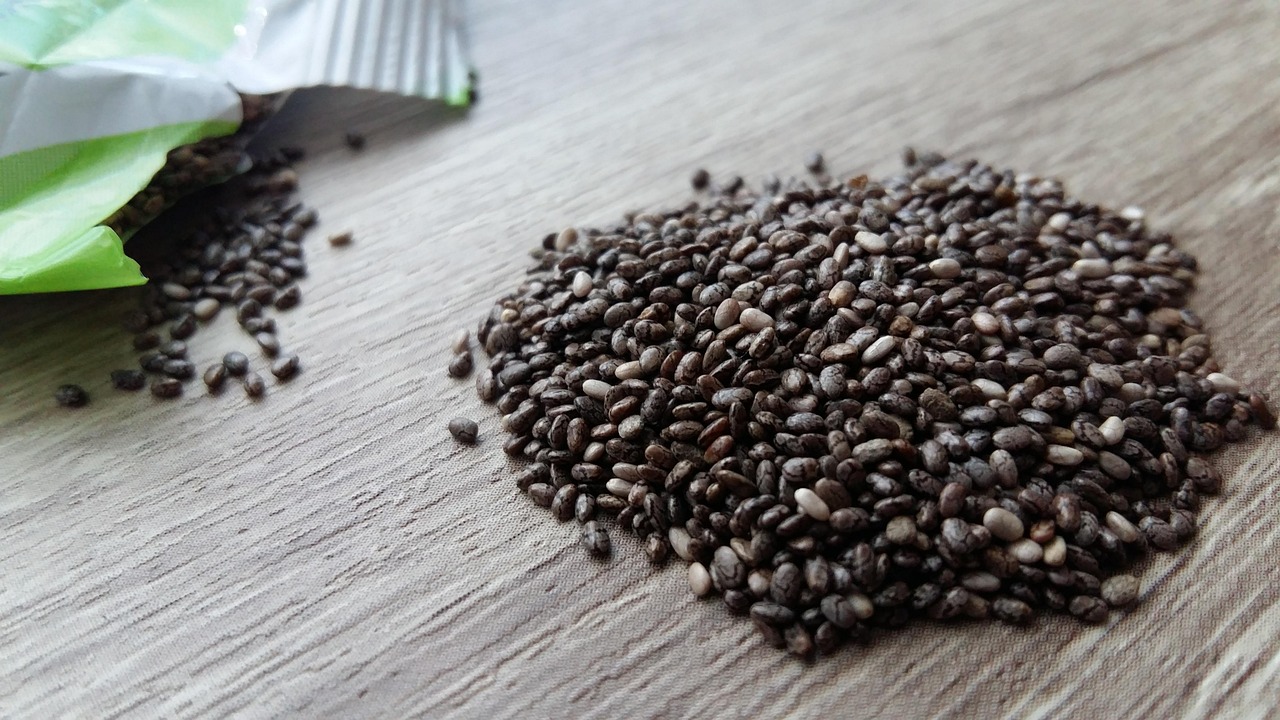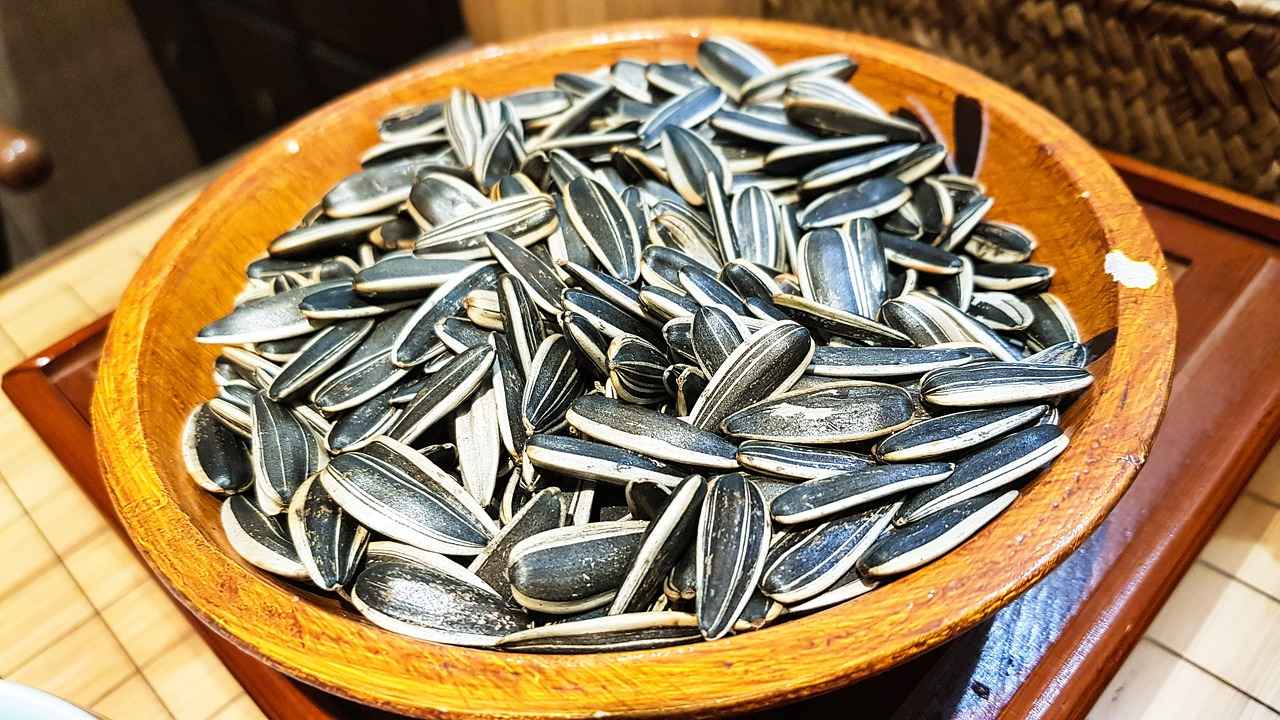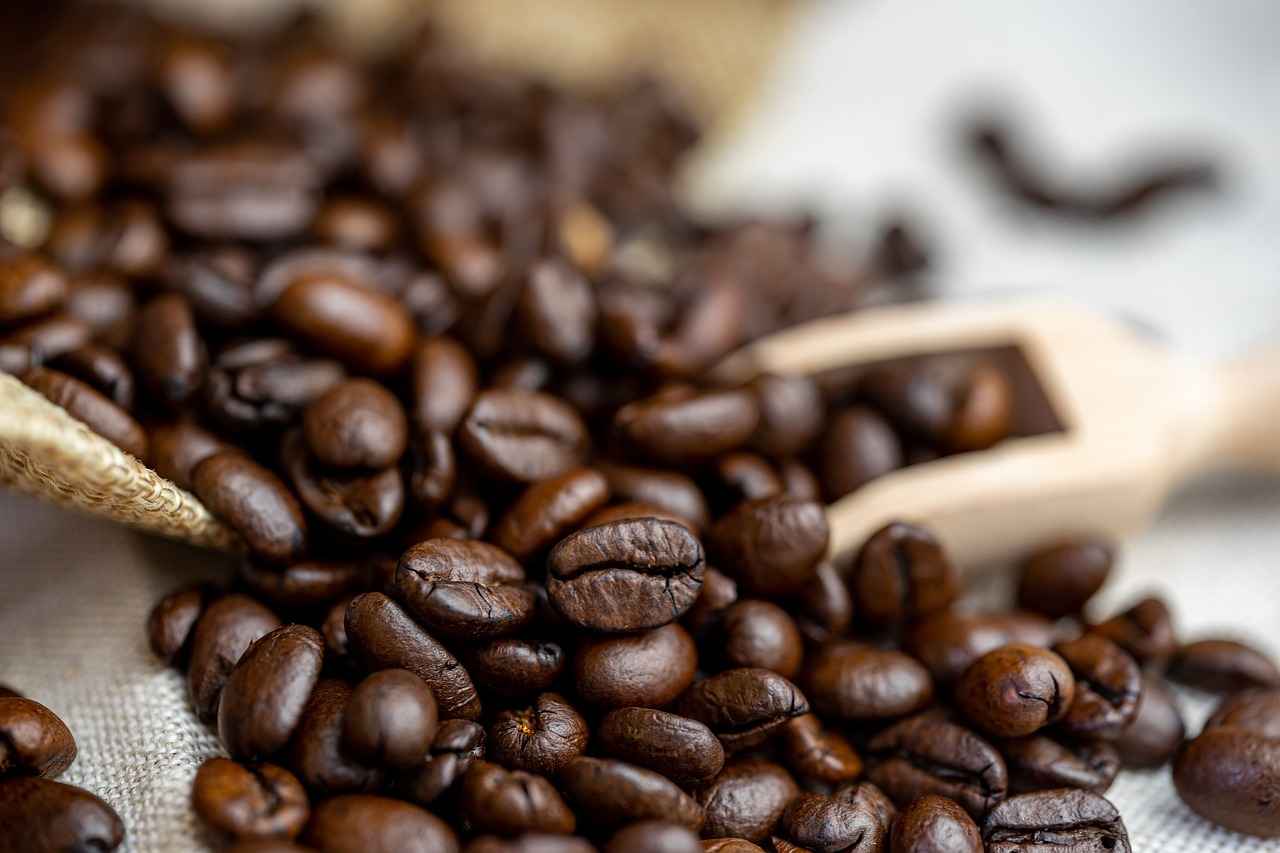This article delves into the digestive benefits of chia seeds, investigating their influence on bowl movements and overall gut health. Supported by scientific research and expert insights, we aim to provide a comprehensive understanding of how these tiny seeds can impact your digestive system.
What Are Chia Seeds?
Chia seeds, sourced from the Salvia hispanica plant, are renowned for their impressive nutritional profile. Packed with fiber, omega-3 fatty acids, and antioxidants, they have gained popularity as a superfood. Their unique properties make them a versatile addition to various diets.
How Do Chia Seeds Affect Digestion?
The high soluble fiber content in chia seeds plays a crucial role in enhancing digestion. When chia seeds absorb water, they form a gel-like substance that can facilitate smooth bowel movements and promote overall digestive health.
- Understanding Soluble vs. Insoluble Fiber: Fiber is categorized into two main types. Soluble fiber dissolves in water and aids in regulating digestion, while insoluble fiber adds bulk to stool, helping maintain regularity.
- Benefits of Soluble Fiber: Soluble fiber can lower cholesterol levels, stabilize blood sugar, and improve gut health. Chia seeds are rich in this type of fiber, making them a beneficial addition to a balanced diet.
- Benefits of Insoluble Fiber: Although chia seeds primarily contain soluble fiber, consuming other sources of insoluble fiber can optimize digestive health and prevent constipation.
Chia Seeds and Hydration
Chia seeds can absorb up to 12 times their weight in water, which is essential for maintaining hydration. Proper hydration enhances the digestive benefits of chia seeds, making it crucial to drink enough fluids when incorporating them into your diet.
Can Chia Seeds Help with Constipation?
Many individuals seek relief from constipation through chia seeds due to their high fiber content. Understanding how chia seeds function can clarify their effectiveness in promoting regular bowel movements.
Recommended Serving Sizes
To maximize the digestive benefits of chia seeds, it is advisable to consume them in moderation. A typical serving size ranges from 1 to 2 tablespoons, which provides ample fiber without causing discomfort.
Potential Side Effects of Chia Seeds
While generally safe, excessive consumption of chia seeds may lead to digestive issues such as bloating or diarrhea. It is essential to understand individual tolerance levels to reap the maximum benefits.
How to Incorporate Chia Seeds into Your Diet?
Integrating chia seeds into your diet is simple and versatile. They can be added to salads, blended into smoothies, or used in baking, providing a nutritious boost to your meals.
- Chia Seed Pudding Recipes: Chia seed pudding is a popular and delicious way to enjoy these seeds. By mixing chia seeds with milk or plant-based alternatives, you can create a nutritious breakfast or snack.
- Chia Seeds in Smoothies: Adding chia seeds to smoothies not only enhances the nutrient profile but also improves texture. They contribute to a satisfying, creamy consistency while increasing fiber intake.
Conclusion: Are Chia Seeds Right for You?
Understanding the digestive benefits of chia seeds can help you determine if they are a suitable addition to your diet. Always consider personal health needs and consult with a healthcare provider if necessary. With their numerous health benefits, chia seeds may be a valuable ally in promoting digestive health.
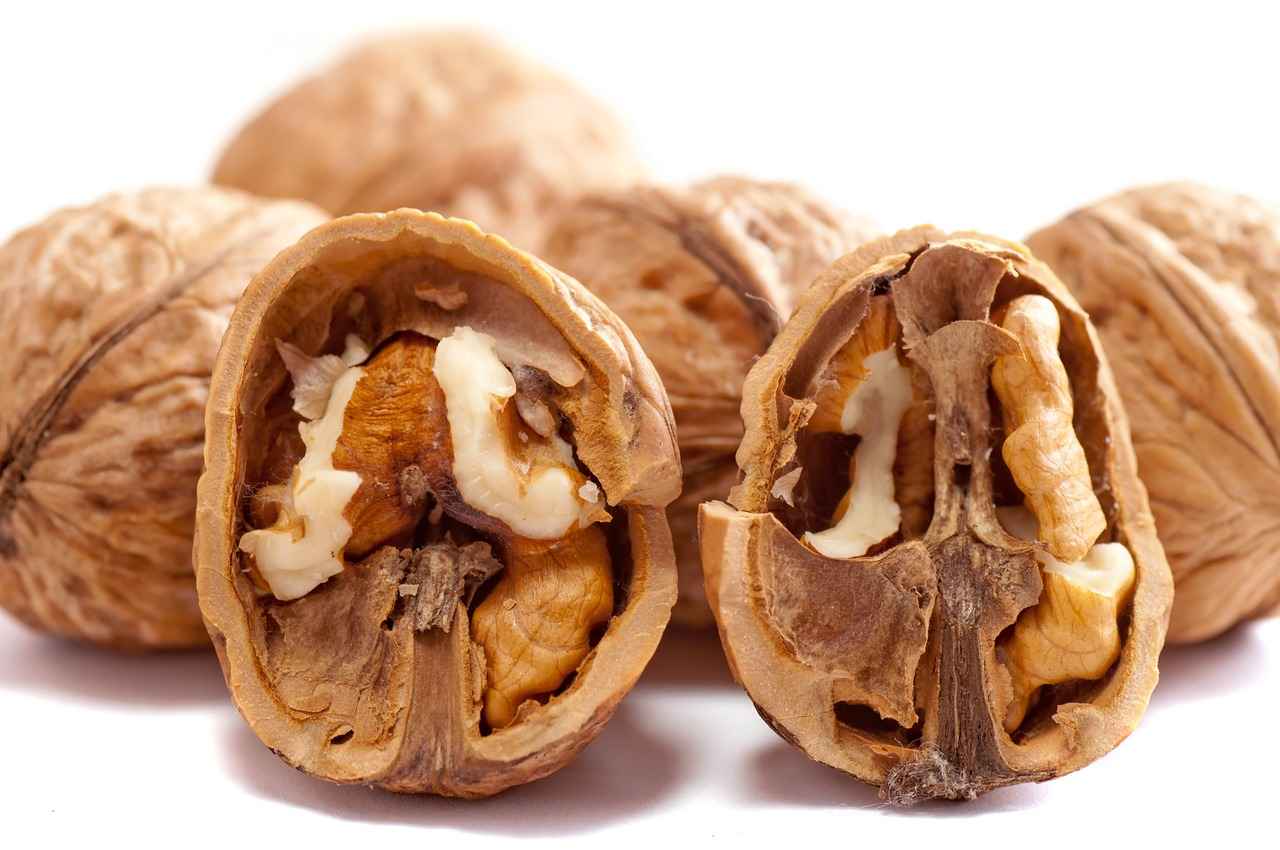
What Are Chia Seeds?
Chia seeds, derived from the Salvia hispanica plant, are tiny, yet incredibly powerful seeds that have gained immense popularity as a superfood. These seeds are not only versatile in culinary applications but are also packed with essential nutrients that contribute to overall health.
One of the most remarkable features of chia seeds is their high fiber content. Just a single ounce (about 28 grams) of chia seeds contains approximately 11 grams of dietary fiber. This makes them an excellent choice for those looking to improve their digestive health. The fiber in chia seeds is primarily soluble, which means it can dissolve in water and form a gel-like substance. This property is crucial for promoting smooth bowel movements and preventing constipation.
Chia seeds are often labeled as a superfood due to their impressive nutrient profile. In addition to fiber, they are rich in omega-3 fatty acids, which are essential for heart health and brain function. These healthy fats help reduce inflammation and may lower the risk of chronic diseases.
Moreover, chia seeds are packed with antioxidants that combat oxidative stress and protect the body from free radical damage. This combination of nutrients makes them a valuable addition to a balanced diet.
The high soluble fiber content in chia seeds plays a significant role in digestive health. When chia seeds are consumed, they absorb water and expand, creating a gel-like substance in the digestive tract. This gel not only helps to regulate bowel movements but also aids in maintaining a healthy gut environment.
- Promotes Regularity: The gel formed by chia seeds helps to soften stool and promote regular bowel movements, making them an effective remedy for constipation.
- Supports Gut Health: The soluble fiber acts as a prebiotic, feeding the beneficial bacteria in the gut and enhancing overall gut health.
- Hydration: Chia seeds can absorb up to 12 times their weight in water, which aids in hydration and helps maintain optimal digestive function.
In addition to their digestive benefits, chia seeds can also aid in weight management. The high fiber content can promote a feeling of fullness, reducing overall calorie intake. When consumed before meals, chia seeds can help curb appetite and prevent overeating.
Incorporating chia seeds into your diet is simple and versatile. Here are some practical ways to enjoy them:
- Chia Seed Pudding: Mix chia seeds with milk or a dairy-free alternative and let them sit overnight to create a delicious pudding.
- Smoothies: Add chia seeds to your favorite smoothie for a nutrient boost and improved texture.
- Sprinkled on Salads: Use chia seeds as a topping for salads to enhance their nutritional value.
When adding chia seeds to your diet, it’s essential to start with small amounts and gradually increase your intake to avoid digestive discomfort. A typical serving size is about 1 to 2 tablespoons.
In conclusion, chia seeds are a nutrient-dense food that can significantly benefit digestive health and overall well-being. Their unique properties and versatility make them an excellent addition to any diet.
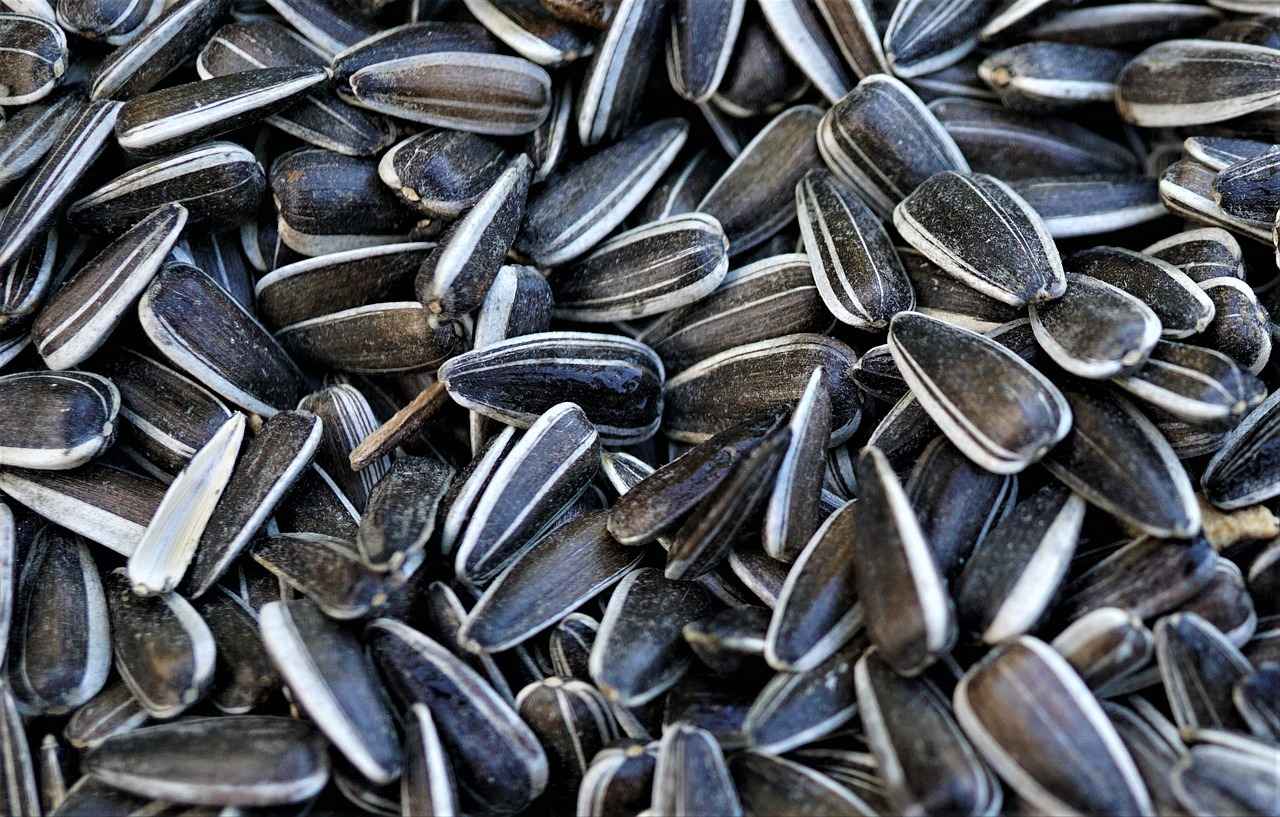
How Do Chia Seeds Affect Digestion?
Chia seeds, often hailed as a superfood, offer a multitude of health benefits, particularly for digestive health. Their unique composition makes them a powerful ally for those seeking to improve their gut function and overall well-being.
Chia seeds can have a profound impact on digestion, primarily due to their high soluble fiber content. This specific type of fiber is known for its ability to absorb water, which results in the formation of a gel-like substance. This gel aids in smooth bowel movements and promotes overall digestive health.
Soluble fiber, such as that found in chia seeds, plays a crucial role in digestive health. When consumed, soluble fiber dissolves in water, creating a viscous gel that can:
- Regulate bowel movements: The gel helps to soften stool, making it easier to pass.
- Stabilize blood sugar levels: By slowing the absorption of sugar, it helps prevent spikes in blood glucose.
- Lower cholesterol levels: This fiber type binds to cholesterol in the digestive system, aiding in its removal from the body.
One of the most fascinating aspects of chia seeds is their ability to absorb up to 12 times their weight in water. This property not only keeps you hydrated but also enhances the digestive benefits of the seeds. Adequate hydration is essential for optimal digestion, as it helps to dissolve nutrients and allows for smoother passage through the digestive tract.
Many individuals seek out chia seeds specifically for their potential to alleviate constipation. The soluble fiber in chia seeds can help to:
- Promote regular bowel movements: By forming a gel, chia seeds can help to bulk up stool and make it easier to pass.
- Enhance gut health: A healthy gut is essential for regularity, and the nutrients in chia seeds support overall digestive function.
To maximize the digestive benefits of chia seeds, it is crucial to consume them in moderation. A typical serving size is about 1-2 tablespoons per day. This amount provides sufficient fiber to support digestive health without causing discomfort.
While chia seeds are generally safe for most individuals, excessive consumption can lead to digestive issues such as bloating or diarrhea. It is essential to listen to your body and adjust your intake accordingly to find your personal tolerance level.
Incorporating chia seeds into your daily diet is simple and versatile. Here are some practical ways to enjoy them:
- Sprinkle on salads: Add a nutritious crunch to your greens.
- Blend into smoothies: Enhance the texture and nutritional profile of your favorite drinks.
- Use in baking: Substitute chia seeds for eggs in vegan recipes or add them to bread and muffins.
Chia seed pudding is a delightful way to enjoy the seeds. By mixing chia seeds with milk or plant-based alternatives, you can create a nutritious breakfast or snack that is both satisfying and beneficial for your digestion.
In conclusion, understanding how chia seeds affect digestion can help you make informed dietary choices. With their high soluble fiber content and hydration properties, chia seeds are a valuable addition to a balanced diet, promoting not only digestive health but overall wellness.
Understanding Soluble vs. Insoluble Fiber
Understanding the Different Types of Fiber
Fiber is an essential component of a healthy diet, categorized into two main types: soluble and insoluble. Each type plays a unique role in promoting digestive health and overall well-being. Understanding these differences is crucial for optimizing your dietary choices.
Soluble fiber dissolves in water, forming a gel-like substance in the digestive tract. This type of fiber is found in foods such as chia seeds, oats, beans, and fruits like apples and oranges. Soluble fiber offers several health benefits:
- Regulates Digestion: By absorbing water, soluble fiber helps soften stool, making it easier to pass, which can be particularly beneficial for individuals suffering from constipation.
- Controls Blood Sugar Levels: Soluble fiber slows down the absorption of sugar, helping to stabilize blood sugar levels and reduce the risk of diabetes.
- Lowers Cholesterol: This type of fiber can help lower LDL (bad) cholesterol levels, contributing to heart health.
In contrast, insoluble fiber does not dissolve in water and adds bulk to the stool. It is found in foods like whole grains, nuts, and the skins of fruits and vegetables. The benefits of insoluble fiber include:
- Prevents Constipation: By adding bulk to the stool, insoluble fiber promotes regular bowel movements and can help prevent constipation.
- Supports Digestive Health: It aids in moving food through the digestive tract, reducing the risk of digestive disorders.
- Helps Maintain a Healthy Weight: Foods high in insoluble fiber are often more filling, which can help with weight management.
Chia seeds are an excellent source of soluble fiber, with about 11 grams of fiber per ounce. When hydrated, they can absorb up to 12 times their weight in water, making them a fantastic addition to your diet for improved digestion. While chia seeds primarily contain soluble fiber, it’s important to balance your intake with other sources of insoluble fiber to optimize digestive health.
To achieve a well-rounded fiber intake, consider the following tips:
- Incorporate a Variety of Foods: Include both soluble and insoluble fiber sources in your meals, such as fruits, vegetables, legumes, and whole grains.
- Stay Hydrated: Drinking plenty of water is essential when increasing fiber intake, as it helps the fiber do its job effectively.
- Gradually Increase Fiber: If you’re not used to consuming high-fiber foods, increase your intake gradually to avoid digestive discomfort.
Understanding the differences between soluble and insoluble fiber can empower you to make informed dietary choices. Incorporating a variety of fiber sources, including chia seeds, can enhance your digestive health and contribute to your overall well-being. Always consult with a healthcare provider for personalized dietary advice.
Benefits of Soluble Fiber
Soluble fiber is a crucial component of a healthy diet, offering numerous benefits that can significantly improve overall well-being. Found in various foods, including fruits, vegetables, and seeds like chia, soluble fiber plays a vital role in digestive health, heart health, and blood sugar management.
What is Soluble Fiber?
Soluble fiber dissolves in water, forming a gel-like substance in the digestive tract. This unique property allows it to slow down digestion, which can be beneficial for several reasons:
- Lowering Cholesterol Levels: Soluble fiber helps to reduce levels of LDL (bad) cholesterol by binding to bile acids in the intestine. This process promotes the excretion of cholesterol, leading to improved heart health.
- Stabilizing Blood Sugar: By slowing the absorption of sugar, soluble fiber helps to maintain steady blood sugar levels. This is particularly beneficial for individuals with diabetes or those looking to prevent blood sugar spikes.
- Improving Gut Health: Soluble fiber acts as a prebiotic, providing nourishment for beneficial gut bacteria. A healthy gut microbiome is essential for digestion, immune function, and even mental health.
How Do Chia Seeds Enhance These Benefits?
Chia seeds are an excellent source of soluble fiber, with about 10 grams of fiber per ounce. When included in a balanced diet, chia seeds can amplify the benefits of soluble fiber:
- Hydration and Digestion: Chia seeds can absorb up to 12 times their weight in water, creating a gel-like consistency that aids in digestion and helps prevent constipation.
- Weight Management: The gel formed by chia seeds can increase feelings of fullness, helping to control appetite and support weight loss efforts.
- Versatile Nutrition: Chia seeds can be easily incorporated into various dishes, from smoothies to baked goods, making it simple to boost fiber intake.
Recommended Intake for Optimal Benefits
To experience the digestive benefits of soluble fiber, including chia seeds in your diet can be highly effective. A recommended serving size is typically 1-2 tablespoons of chia seeds daily. This amount provides a substantial fiber boost without overwhelming the digestive system.
Potential Side Effects to Consider
While chia seeds are generally safe, consuming them in excessive amounts can lead to digestive discomfort, such as bloating or diarrhea. It’s essential to increase fiber intake gradually and drink plenty of water to support digestion.
Conclusion
Incorporating soluble fiber, especially from sources like chia seeds, can lead to significant health benefits, including improved cholesterol levels, stabilized blood sugar, and enhanced gut health. By understanding how soluble fiber works and its advantages, individuals can make informed dietary choices to support their overall health.
Benefits of Insoluble Fiber
Insoluble fiber is an essential component of a healthy diet, playing a significant role in maintaining digestive health. Unlike soluble fiber, which dissolves in water, insoluble fiber adds bulk to stool, facilitating regular bowel movements. This type of fiber is found in various foods, including whole grains, nuts, seeds, and vegetables. Understanding the benefits of insoluble fiber can help individuals make informed dietary choices.
- Prevention of Constipation: One of the primary benefits of insoluble fiber is its ability to prevent constipation. By adding bulk to the stool, it helps to move waste through the digestive tract more efficiently. This can lead to more regular bowel movements, reducing the discomfort associated with constipation.
- Promotes a Healthy Gut: A diet rich in insoluble fiber can contribute to a healthy gut microbiome. It acts as a food source for beneficial gut bacteria, promoting their growth and activity. This can enhance overall gut health and improve digestion.
- Weight Management: Insoluble fiber can aid in weight management by promoting a feeling of fullness. Foods high in insoluble fiber tend to be more filling, which can help reduce overall calorie intake and assist in weight loss efforts.
- Reduces Risk of Digestive Disorders: Regular consumption of insoluble fiber has been linked to a lower risk of developing various digestive disorders, including diverticulitis and hemorrhoids. By promoting regular bowel movements, it helps prevent the formation of diverticula and reduces strain during defecation.
- Regulates Blood Sugar Levels: Although soluble fiber is more commonly associated with blood sugar regulation, insoluble fiber can also play a role. By slowing down the digestive process, it helps to stabilize blood sugar levels, making it beneficial for individuals with diabetes.
While chia seeds are primarily known for their high soluble fiber content, incorporating other sources of insoluble fiber into your diet can optimize your digestive health. Foods such as whole grains, vegetables, and legumes should be included to ensure a well-rounded fiber intake.
To maximize the benefits of insoluble fiber, it is essential to consume it in conjunction with sufficient water. This combination helps to soften the stool and promotes its movement through the intestines, further enhancing digestive health.
In conclusion, while chia seeds offer numerous health benefits, particularly due to their soluble fiber content, it is vital to include a variety of fiber sources in your diet. By doing so, you can enjoy the comprehensive digestive benefits that both soluble and insoluble fibers provide, leading to improved overall health and well-being.
Chia Seeds and Hydration
Chia seeds have gained immense popularity in recent years, particularly for their numerous health benefits. One of the most remarkable features of these tiny seeds is their ability to absorb water, making them a valuable ally in maintaining hydration. In this section, we will explore the relationship between chia seeds and hydration, and how this connection can significantly enhance digestive health.
Chia seeds can absorb up to 12 times their weight in water. This unique property transforms them into a gel-like substance when soaked, which not only aids in hydration but also plays a crucial role in digestion. When chia seeds are consumed, they expand in the stomach, creating a feeling of fullness and promoting a slow release of energy. This is particularly beneficial for those looking to manage their weight or sustain energy levels throughout the day.
Staying properly hydrated is essential for optimal digestive function. Water helps to break down food, allowing for better nutrient absorption and smoother bowel movements. Without adequate hydration, the digestive system can become sluggish, leading to issues such as constipation or bloating. By incorporating chia seeds into your diet, you can enhance your hydration levels, which in turn supports digestive health.
- Improved Digestion: The water-absorbing properties of chia seeds help create a gel-like consistency in the digestive tract, which can facilitate smoother bowel movements.
- Enhanced Nutrient Absorption: Proper hydration is vital for the absorption of nutrients. Chia seeds, when consumed with water, can help ensure that your body effectively utilizes the nutrients from your food.
- Weight Management: The gel-like substance formed by chia seeds can promote a feeling of fullness, reducing overall calorie intake and aiding in weight control.
To maximize the hydration benefits of chia seeds, it’s important to prepare them correctly. Here are some practical tips:
1. Soak chia seeds in water for at least 30 minutes before consuming.2. Add soaked chia seeds to smoothies, yogurt, or oatmeal for a nutritious boost.3. Experiment with chia seed puddings by mixing them with your favorite milk or plant-based alternatives.
While chia seeds are beneficial, moderation is key. Consuming excessive amounts can lead to digestive discomfort, such as bloating or diarrhea. It is advisable to start with a small serving size, around 1-2 tablespoons, and gradually increase as your body adjusts.
In conclusion, chia seeds are not only a powerhouse of nutrients but also a fantastic way to enhance hydration. Their ability to absorb water significantly contributes to digestive health, making them an excellent addition to a balanced diet. By understanding how to incorporate chia seeds effectively, you can enjoy their numerous benefits while promoting overall well-being.
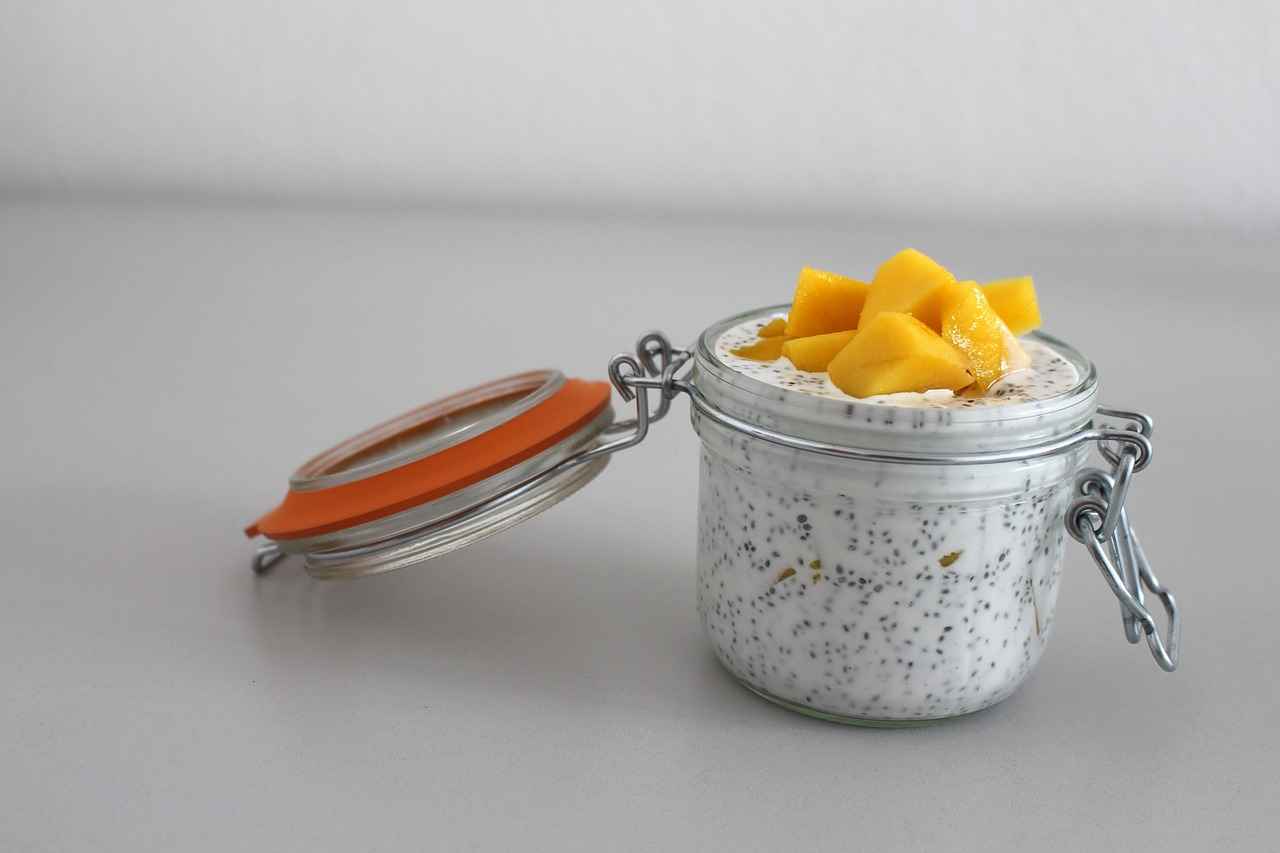
Can Chia Seeds Help with Constipation?
Chia seeds have gained immense popularity as a superfood, often touted for their numerous health benefits. Among these benefits, their potential to aid in digestion and relieve constipation is frequently highlighted. But how effective are chia seeds for this purpose? In this article, we will delve into the science behind chia seeds and their role in promoting digestive health.
Many individuals turn to chia seeds for relief from constipation, largely due to their impressive fiber content. A single ounce (about 28 grams) of chia seeds contains approximately 11 grams of fiber, which is a significant portion of the recommended daily intake for adults. This high fiber content plays a crucial role in promoting regular bowel movements.
Chia seeds are primarily composed of soluble fiber, which absorbs water and forms a gel-like substance in the digestive tract. This gel can help to:
- Soften stools, making them easier to pass.
- Increase stool bulk, which can stimulate bowel movements.
- Regulate the digestive process, preventing both constipation and diarrhea.
Another key factor in the effectiveness of chia seeds for digestion is their ability to absorb water. They can soak up to 12 times their weight in water. This property not only enhances hydration but also supports the digestive process. Adequate hydration is essential for maintaining healthy bowel movements, as it helps to keep the stool moist and easier to pass.
To experience the digestive benefits of chia seeds, it is crucial to consume them in appropriate amounts. A typical serving size ranges from 1 to 2 tablespoons. This quantity provides enough fiber to aid digestion without overwhelming the digestive system. It’s also important to gradually increase fiber intake to allow the body to adjust, which can help prevent discomfort such as bloating.
While chia seeds are generally safe for most people, excessive consumption can lead to digestive issues. Some individuals may experience:
- Bloating
- Gas
- Diarrhea
Listening to your body and adjusting your intake accordingly is essential for maximizing the benefits of chia seeds while minimizing potential side effects.
Incorporating chia seeds into your daily meals can be both easy and enjoyable. Here are some practical ways to add them to your diet:
- Chia Seed Pudding: Mix chia seeds with milk or a plant-based alternative and let them sit overnight to create a delicious pudding.
- Smoothies: Blend chia seeds into your favorite smoothie for an added boost of fiber and nutrients.
- Salads and Baked Goods: Sprinkle chia seeds on salads or mix them into baked goods for extra texture and nutritional value.
By experimenting with these methods, you can easily enjoy the digestive benefits of chia seeds while enhancing the nutritional profile of your meals.
In conclusion, chia seeds can indeed be a valuable addition to your diet for promoting digestive health and alleviating constipation. With their high fiber content, ability to absorb water, and versatile uses, they offer a natural solution for those seeking relief. However, as with any dietary change, it’s important to consider individual health needs and consult with a healthcare provider if necessary.
Recommended Serving Sizes
When it comes to incorporating chia seeds into your diet, understanding the appropriate serving sizes is crucial for maximizing their digestive benefits. These tiny seeds are packed with nutrients, but moderation is key to enjoying their advantages without experiencing any discomfort.
Chia seeds are known for their high fiber content, which can aid digestion and promote regular bowel movements. However, consuming them in excessive amounts can lead to digestive issues such as bloating or discomfort. Therefore, being mindful of the is essential.
A typical serving size of chia seeds is about 1-2 tablespoons. This amount provides a sufficient dose of fiber—approximately 5 grams per tablespoon—without overwhelming your digestive system. This moderate intake allows your body to reap the benefits while minimizing the risk of gastrointestinal distress.
- Use a Measuring Spoon: For accuracy, use a standard measuring spoon to scoop out your chia seeds.
- Consider Your Diet: Adjust your serving size based on your overall fiber intake from other foods.
- Hydrate: Always consume chia seeds with adequate water to aid in their digestion and absorption.
If you are new to chia seeds, it is advisable to start with a smaller serving size, such as 1 teaspoon, and gradually increase it to 1-2 tablespoons over time. This gradual approach allows your digestive system to adjust to the increased fiber intake, helping to prevent any potential discomfort.
There are numerous ways to include chia seeds in your diet, making it easy to reach the recommended serving size:
- Chia Pudding: Mix chia seeds with milk or a non-dairy alternative and let them soak overnight for a nutritious breakfast.
- Smoothies: Blend chia seeds into your favorite smoothies for added texture and fiber.
- Salads: Sprinkle chia seeds on top of salads for a crunchy texture and nutritional boost.
It’s essential to pay attention to how your body reacts to chia seeds. If you experience any discomfort, it may be wise to reduce your serving size or consult with a healthcare provider. Everyone’s digestive system is unique, and individual tolerance levels can vary.
In summary, the recommended serving size for chia seeds is 1-2 tablespoons, providing a balance of benefits without overwhelming your digestive system. By starting with a smaller amount and gradually increasing your intake, you can enjoy the many health benefits of chia seeds while maintaining digestive comfort. Always remember to stay hydrated and listen to your body’s signals for the best results.
Potential Side Effects of Chia Seeds
Chia seeds have gained immense popularity as a superfood due to their numerous health benefits, particularly in terms of digestive health. However, like any food, they can have potential side effects, especially when consumed in excess. Understanding these side effects is crucial for maximizing the benefits of chia seeds while minimizing discomfort.
While chia seeds are generally safe for most people, excessive consumption can lead to some digestive issues. These may include:
- Bloating: Due to their high fiber content, consuming too many chia seeds at once can lead to bloating. This is particularly true if the seeds are not adequately hydrated before consumption.
- Diarrhea: Overeating chia seeds can also result in diarrhea, as the body may struggle to process large amounts of fiber at once.
- Abdominal Discomfort: Some individuals may experience general abdominal discomfort or cramping if they are not used to high-fiber diets.
The recommended serving size for chia seeds is about 1-2 tablespoons per day. This amount provides sufficient fiber without overwhelming the digestive system. For those who are new to chia seeds or have a sensitive digestive system, it is advisable to start with a smaller quantity and gradually increase intake.
Chia seeds can absorb up to 12 times their weight in water, forming a gel-like substance. This property is beneficial for digestion, but it also means that adequate hydration is essential when consuming chia seeds. If you consume them without enough fluids, you may increase the risk of experiencing digestive discomfort.
Everyone’s digestive system is different, and individual tolerance levels for fiber can vary widely. Some people may enjoy the benefits of chia seeds without any side effects, while others may find that even small amounts lead to discomfort. It is crucial to listen to your body and adjust your intake accordingly.
If you have existing digestive issues or conditions such as irritable bowel syndrome (IBS), consulting with a healthcare provider before adding chia seeds to your diet is advisable. They can provide personalized recommendations based on your health history and dietary needs.
To enjoy the benefits of chia seeds while minimizing potential side effects, consider the following tips:
- Soak Before Eating: Soaking chia seeds in water or another liquid before consumption can help reduce the risk of bloating and discomfort.
- Combine with Other Foods: Incorporating chia seeds into meals, such as smoothies or yogurt, can help balance fiber intake and enhance overall digestive health.
- Monitor Your Body’s Response: Keep track of how your body reacts to chia seeds and adjust your intake as needed.
In conclusion, while chia seeds are a nutritious addition to any diet, it is essential to consume them in moderation and be mindful of individual tolerance levels. By understanding the potential side effects and taking appropriate precautions, you can maximize the digestive benefits of chia seeds and enjoy their many health advantages.

How to Incorporate Chia Seeds into Your Diet?
In recent years, chia seeds have gained immense popularity as a superfood due to their numerous health benefits. One of the most appealing aspects of chia seeds is their versatility in the kitchen. This article will explore various ways to incorporate chia seeds into your diet, making it easier for you to enjoy their nutritional advantages.
Incorporating chia seeds into your meals can be both simple and enjoyable. Here are some effective methods:
- Sprinkle on Salads: Chia seeds can add a delightful crunch to your salads. Just a tablespoon sprinkled over your favorite greens can enhance both the flavor and nutritional value.
- Blend into Smoothies: Adding chia seeds to smoothies is an excellent way to boost their fiber and nutrient content. They blend seamlessly and contribute to a creamy texture. Try adding 1-2 tablespoons to your morning smoothie for a nutritious start to your day.
- Use in Baking: Chia seeds can be incorporated into various baked goods, such as muffins, bread, and pancakes. They not only enhance the nutritional profile but also act as a binding agent when mixed with water, making them a great egg substitute in vegan recipes.
- Make Chia Seed Pudding: Combine chia seeds with milk or a plant-based alternative and let them sit overnight. The seeds absorb the liquid and create a delicious pudding that can be flavored with fruits, honey, or vanilla.
- Add to Yogurt: Mix chia seeds into yogurt for added texture and nutrition. This combination makes for a satisfying snack or breakfast option.
Chia seeds are packed with essential nutrients. They are rich in omega-3 fatty acids, which are beneficial for heart health, and they contain high levels of fiber, which aids in digestion. Additionally, chia seeds are a great source of antioxidants, vitamins, and minerals.
Due to their high fiber content, chia seeds can help promote a feeling of fullness, which may assist in weight management. Including them in your meals can help reduce overall calorie intake by keeping you satisfied longer.
To maintain their freshness, store chia seeds in a cool, dry place, preferably in an airtight container. They can also be stored in the refrigerator for extended shelf life. Proper storage ensures that you can enjoy their health benefits for a longer period.
While chia seeds are generally safe for most people, it is important to consume them in moderation. Due to their high fiber content, excessive intake may lead to digestive discomfort. It is advisable to start with small amounts and gradually increase your intake as your body adjusts.
In conclusion, incorporating chia seeds into your diet can be both easy and beneficial for your health. With their versatility and numerous nutritional advantages, these tiny seeds can enhance your meals and contribute to overall well-being.
Chia Seed Pudding Recipes
Chia seed pudding has gained immense popularity as a versatile and nutritious dish, perfect for breakfast or a snack. By simply mixing chia seeds with your choice of milk or plant-based alternatives, you can create a delightful treat that not only satisfies your taste buds but also provides numerous health benefits.
Chia seeds are packed with essential nutrients, including fiber, omega-3 fatty acids, and antioxidants. When combined with liquid, they swell and form a gel-like consistency, which enhances the pudding’s texture and nutritional profile. This unique property makes chia seed pudding a fantastic option for those looking to boost their dietary fiber intake.
Creating chia seed pudding is incredibly simple and requires minimal ingredients. Here’s a basic recipe to get you started:
- Ingredients:
- 1/4 cup chia seeds
- 1 cup milk (dairy or plant-based)
- 1-2 tablespoons sweetener (honey, maple syrup, or agave)
- 1/2 teaspoon vanilla extract (optional)
- Instructions:
- In a bowl, combine the chia seeds, milk, sweetener, and vanilla extract.
- Stir well to prevent clumping.
- Let it sit for about 10 minutes, then stir again.
- Cover and refrigerate for at least 2 hours or overnight.
- Serve chilled, topped with your favorite fruits or nuts.
While the basic recipe is delicious on its own, you can customize your chia seed pudding in countless ways:
- Chocolate Chia Seed Pudding: Add 2 tablespoons of cocoa powder to the basic recipe for a rich chocolate flavor.
- Fruit-Infused Chia Seed Pudding: Blend in pureed fruits like mango, banana, or berries for a refreshing twist.
- Spiced Chia Seed Pudding: Incorporate spices such as cinnamon or nutmeg to enhance the flavor profile.
- Nutty Chia Seed Pudding: Mix in almond or peanut butter for added creaminess and protein.
Chia seed pudding is not just a tasty treat; it also offers numerous health benefits:
- High in Fiber: Promotes digestive health and helps maintain regular bowel movements.
- Rich in Omega-3 Fatty Acids: Supports heart health and reduces inflammation.
- Antioxidant Properties: Protects against oxidative stress and may lower the risk of chronic diseases.
- Satiety: Keeps you feeling full longer, making it a great option for weight management.
To enjoy your chia seed pudding to the fullest, consider the following tips:
- Experiment with different liquids, such as coconut milk or almond milk, for varied flavors.
- Top with fresh fruits, nuts, or seeds for added texture and nutrients.
- Prepare a batch in advance for a quick grab-and-go breakfast during busy mornings.
In conclusion, chia seed pudding is a delicious and healthy option that can easily be incorporated into your diet. With its myriad of variations and health benefits, it’s a dish worth trying!
Chia Seeds in Smoothies
Chia seeds have gained popularity as a nutritional powerhouse, and one of the most enjoyable ways to incorporate them into your diet is through smoothies. Adding chia seeds to your smoothies not only enhances their nutrient profile but also improves their texture, resulting in a more satisfying and creamy consistency.
When blended into smoothies, chia seeds provide a multitude of benefits:
- Boost Nutritional Value: Chia seeds are packed with essential nutrients, including fiber, protein, omega-3 fatty acids, and antioxidants. This makes them an excellent addition to any smoothie, enriching it with vital nutrients.
- Improve Texture: The unique ability of chia seeds to absorb liquid and expand creates a gel-like consistency. This not only thickens your smoothie but also makes it more filling, helping you feel satisfied for longer.
- Increase Fiber Intake: Smoothies often lack sufficient fiber, but adding chia seeds can significantly enhance fiber content. This is particularly beneficial for digestive health and can aid in promoting regular bowel movements.
Incorporating chia seeds into your smoothies is simple and versatile. Here are some effective tips:
- Soak Before Blending: For a smoother texture, consider soaking chia seeds in water or your favorite milk for about 10-15 minutes before adding them to your smoothie. This allows them to expand and absorb moisture, enhancing the overall consistency.
- Experiment with Flavors: Chia seeds have a mild flavor, making them easy to blend with various fruits, vegetables, and other smoothie ingredients. Try combining them with berries, bananas, spinach, or nut butter for a delicious and nutritious drink.
- Start with Small Amounts: If you’re new to chia seeds, start with a smaller quantity, such as 1 tablespoon, and gradually increase as your body adjusts. This helps to prevent any potential digestive discomfort.
Here are a couple of simple recipes to get you started:
1. Berry Chia Smoothie: - 1 cup mixed berries (fresh or frozen) - 1 banana - 1 tablespoon chia seeds - 1 cup almond milk - Blend until smooth and enjoy!2. Green Chia Smoothie: - 1 cup spinach - 1/2 avocado - 1 tablespoon chia seeds - 1 cup coconut water - Blend until creamy and refreshing!
Regularly incorporating chia seeds into your smoothies can lead to numerous health benefits:
- Enhanced Digestion: The high fiber content helps maintain gut health and promotes regularity, making chia seeds an excellent choice for digestive support.
- Weight Management: The combination of fiber and healthy fats can help you feel fuller for longer, potentially aiding in weight management efforts.
- Heart Health: Omega-3 fatty acids found in chia seeds contribute to heart health by supporting healthy cholesterol levels and reducing inflammation.
In conclusion, adding chia seeds to your smoothies is a simple yet effective way to enhance their nutritional value and improve texture. With their numerous health benefits, chia seeds can be a valuable addition to your daily diet, making your smoothies not just delicious but also a powerhouse of nutrients.
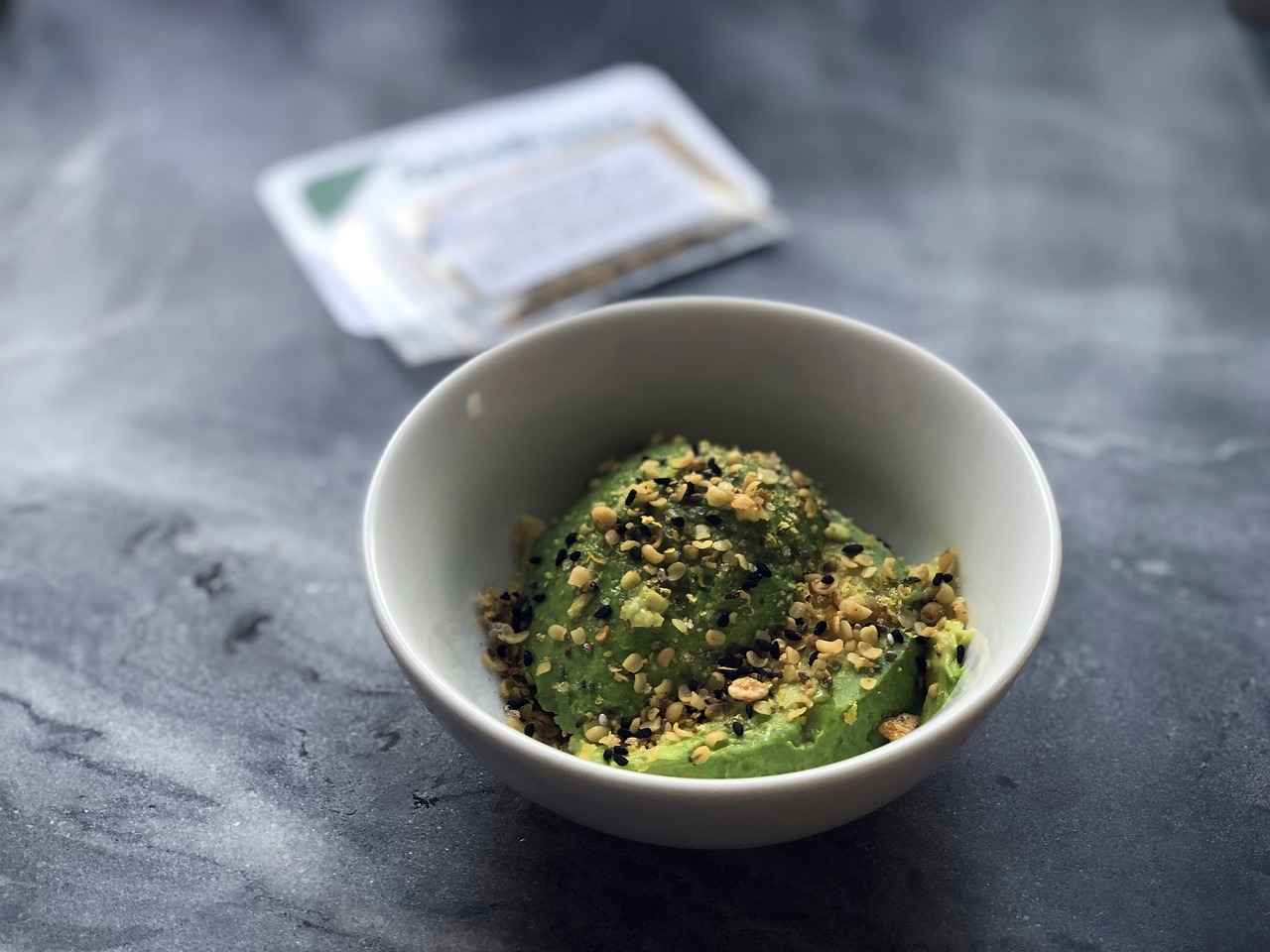
Conclusion: Are Chia Seeds Right for You?
When considering whether chia seeds are a beneficial addition to your diet, it’s essential to delve into their digestive advantages. Understanding how chia seeds interact with your body can provide insights into their potential effects on your digestive health.
Chia seeds are packed with nutrients, particularly fiber. They contain both soluble and insoluble fiber, which play crucial roles in digestion. The soluble fiber in chia seeds forms a gel-like substance when mixed with water, which can help to regulate bowel movements and prevent constipation.
The high fiber content in chia seeds can significantly impact your digestive system. When consumed, the soluble fiber absorbs water and expands, which can help to soften stool and make it easier to pass. This process can be particularly beneficial for those experiencing constipation.
Many individuals have found relief from constipation by incorporating chia seeds into their diets. The seeds’ ability to absorb water and create a gel-like consistency can help to bulk up stool and promote regularity. However, it’s important to consume them with adequate hydration to maximize their effectiveness.
To experience the digestive benefits of chia seeds, a typical serving size is about 1-2 tablespoons per day. This amount provides sufficient fiber without overwhelming your digestive system. Gradually introducing chia seeds into your diet can help your body adjust and minimize any potential discomfort.
While chia seeds are generally safe for most people, excessive consumption can lead to digestive issues such as bloating or diarrhea. It’s crucial to listen to your body and adjust your intake accordingly. If you experience adverse effects, consider reducing your serving size or consulting with a healthcare professional.
Adding chia seeds to your meals can be simple and versatile. Here are some popular ways to include them:
- Chia Seed Pudding: Combine chia seeds with milk or a plant-based alternative and let it sit overnight for a nutritious breakfast.
- Smoothies: Blend chia seeds into your favorite smoothies for added fiber and a creamy texture.
- Salads: Sprinkle chia seeds on salads for a crunchy texture and nutrient boost.
Before incorporating chia seeds into your diet, it’s essential to consider your personal health needs. If you have any underlying health conditions or concerns about fiber intake, it’s advisable to consult with a healthcare provider. They can help determine if chia seeds are suitable for you and provide personalized recommendations.
In summary, understanding the digestive benefits of chia seeds can significantly influence your decision on whether to add them to your diet. With their high fiber content and ability to promote regularity, chia seeds may be a valuable addition for those seeking to enhance their digestive health. Always remember to listen to your body and consult with a healthcare professional if you have any questions or concerns.
Frequently Asked Questions
- Do chia seeds really help with constipation?
Absolutely! Chia seeds are packed with soluble fiber, which can help regulate your digestive system and promote regular bowel movements. When they absorb water, they form a gel-like substance that aids in smoother digestion.
- How much chia seeds should I eat for digestive benefits?
A typical serving size is about 1-2 tablespoons. This amount provides enough fiber to support digestion without overwhelming your system. Remember, moderation is key!
- Can I eat chia seeds every day?
Yes, you can enjoy chia seeds daily! Just be mindful of your body’s response. If you notice any digestive discomfort, consider adjusting your intake. It’s all about finding what works for you!
- How can I add chia seeds to my meals?
Chia seeds are super versatile! You can sprinkle them on salads, blend them into smoothies, or even make delicious chia seed pudding. Get creative and enjoy their nutty flavor!
- Are there any side effects of eating too many chia seeds?
While chia seeds are generally safe, consuming them in excess can lead to digestive issues like bloating or diarrhea. It’s important to listen to your body and adjust your intake as needed.
